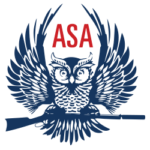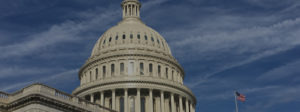When it comes to suppressors, wait times suck!
Since they were first regulated in 1934, delays associated with Form 4 processing have been a reality that the suppressor community has had to live with. For years, the American Suppressor Association has actively advocated for changes to the process to improve efficiencies and decrease delays. According to ATF, the months-long wait times we have unwillingly become accustomed to may be a thing of the past!
At the end of 2023, the American Suppressor Association coordinated an Industry Roundtable with ATF to discuss problems and offer solutions to many of the underlying issues slowing down the eForms system. On March 15, 2024, the National Firearms Act Division hosted a webinar to discuss the processing improvements they have recently implemented. These improvements, many of which are a direct result of ASA’s Industry Roundtable with ATF, have helped dramatically speed up Form 4 transfers, bringing many approvals down to mere hours! While there is still tremendous variability in transfer times, ATF openly stated that the new and improved processing times are the “new normal” and are expected to continue!
During the webinar, we learned a lot about the latest processes that ATF is employing to all but eliminate wait times. We’ve summarized the details into an FAQ so let’s dive into what we were told:
How is NFA Division currently processing forms?
In order to process an NFA application, ATF must first receive a response from the FBI National Instant Criminal Background Check System (NICS). The NFA Division currently submits NICS checks to the FBI in large batches. Rather than approving transfers sequentially based on date received, NFA examiners are now focusing on rapidly processing applications as soon as the NICS response has been received.
According to ATF, the “NFA Division is processing eForm Individual applications in real-time” and will quickly do the same for Form 4s utilizing an NFA trust. Translated, this means that as soon as an approved NICS check is received by ATF, the NFA application is processed for final approval.
The NFA Division has established several “swimlanes” where forms are funneled to examiners for processing to streamline the process further. These swim lanes are:
- Individual Applications
- Bundled Individual Applications
- NFA Trust Applications
- Bundled NFA Trust Applications
What is “Bundling”?
This is the term the NFA Division uses to identify an individual or trust with multiple pending applications in queue. These applications are for items purchased at the same time or over a period of time. When bundled, the NFA Division identifies these applications and packages them together so that a single NICS check can be submitted and all pending applications can be approved simultaneously. This reduces the overall number of background checks sent to FBI-NICS and allows NFA examiners to efficiently process multiple applications simultaneously.
What led to the rapid decrease in Form 4 processing times?
Changes in basic processing methods are responsible for the rapid decrease in Form 4 processing times. While paper forms will always be accepted, the NFA transfer process has been optimized to more efficiently process electronic applications. With roughly 96% of all NFA applications submitted electronically, this means more can be processed in a shorter period of time.
Perhaps the most impactful change is ATF’s departure from the “First In, First Out” approach. Rather than waiting for applications to be approved sequentially, NFA now focuses on approving applications as soon as the applicant’s background check has received a NICS “proceed”. Around 70% of background checks receive an instant “proceed” from the FBI’s National Instant Criminal Background Check System (NICS). The remaining 30% are “delayed” or “denied”.
“Delayed” background checks require further investigation by the FBI-NICS team to ensure the applicant can legally procure a firearm. Delays are often resolved in a matter of moments, but with NFA applications, the delay can sometimes take months. That is because NFA items are not subject to the three business day statutory window outlined by the Brady Act. In other words, the FBI does not have to process delayed NICS checks for NFA items as quickly as they do for Title I guns (rifles, pistols, shotguns). It is important to note that NFA examiners do not process these background checks; the FBI does.
As of March 12, 2024, NFA has 77,963 open status background checks with NICS – the oldest dating back to May 8, 2023. This is a leading cause for the wide range of approval times experienced by consumers.
Why did the NFA Division stop processing forms on a First In, First Out basis?
According to ATF, “processing applications on a First In, First Out basis is untenable when FBI-NICS is an ‘upstream supplier.’” To illustrate their point, ATF offered a grocery store express checkout lane analogy:
If five people are ready to pay by credit card and have only one item, each is stuck behind one person paying by check with a week’s worth of groceries and 20 coupons. It isn’t fair to hold up the five people that are ready to go.
“Fairness,” of course, is relative, especially for those with errors, complex trust issues, and/or background check delays. However, this new process moves the most significant number of applicants (70%) through the system in the most efficient manner so that examiners can then process delayed transfers more efficiently. This results in reduced transfer times across the board for all applicant types. There are also simple steps that applicants can take to avoid many of the common causes for delay.
How can I ensure my application is not delayed?
There is no single silver bullet to 100% ensure that your application is not delayed. However, if you take these steps, the likelihood of a delay is significantly lower:
- Include your Social Security Number on your Form 4
- Including your SSN reduces misidentification during background checks, especially for people with common names.
- If you are frequently delayed when purchasing firearms, consider applying for a Unique Personal Identification Number (UPIN).
- UPINs are assigned by the FBI to help applicants who experience frequent delays or wrongful denials quickly prove that they are not a prohibited person.
- If you have a Unique Personal Identification Number (UPIN), include it.
What improvements are being made to expedite the processing of NFA trust applications?
The NFA Division is working to implement several improvements to the processing of trust applications that will all but eliminate the gap between individual and trust applicants. This will be especially true for applicants using “standardized trusts” sold by reputable companies which have already been thoroughly vetted by ATF. Because they have been vetted, they require less manual review by examiners.
The NFA Division will also do away with the paper Responsible Person Questionnaire (RPQ) that must be completed by each Responsible Person (RP), scanned, and attached to trust applications. Instead, they will incorporate an electronic RPQ(s) as part of the eForms system. This will reduce common errors encountered with trust applications and reduce the workload on both the applicant and NFA.
How can I ensure the fastest approval using a trust?
- Use a standardized trust from a reputable source
- ATF has indicated that they are working to expedite the processing of applications using common NFA trusts.
- Submit a responsible person questionnaire (RPQ) for each RP named in the trust
- Every single RP. No exceptions.
- Avoid submitting an invalid trust
- For example: settlor, trustee, and beneficiary are the same person (merger doctrine).
- Verify that the trust name listed on the trust documents matches the eForm application
- If the name on your NFA Trust does not match the name on your NFA application, it will be delayed or denied.
- Ensure that minors are not listed as responsible persons
- Minors can’t serve as an RP – no matter how responsible they may seem.
- The more RP’s on a trust, the greater the chance of a delay
- Even a single error or delayed NICS check for one RP will delay the entire approval.
Why are some consumers still waiting for an application to be approved when more recent applications are being approved so quickly?
Moving forward, the variability is most likely due to a delay in the NICS background check. As of March 12, 2024, the NFA Division was awaiting responses to 77,963 background check requests from NICS. The oldest outstanding check dates back to May 8, 2023.
If you have a pending transfer that has exceeded the NFA’s published average transfer times on their website, your dealer should contact NFA via phone at (304) 616-4500, or email IPB@atf.gov to obtain a status update.
The American Suppressor Association (ASA) is the unified voice of the suppressor community. We exist for one reason and one reason only: to fight for pro-suppressor reform nationwide.
The ability of the American Suppressor Association to fight for pro-suppressor reform is tied directly to our ability to fundraise. Since the ASA’s formation in 2011, 3 states have legalized suppressor ownership and 18 states have legalized suppressor hunting. Much of this would not have happened without your support. For more information on how you can join us in the fight to help protect and expand your right to own and use suppressors, visit www.AmericanSuppressorAssociation.com.










